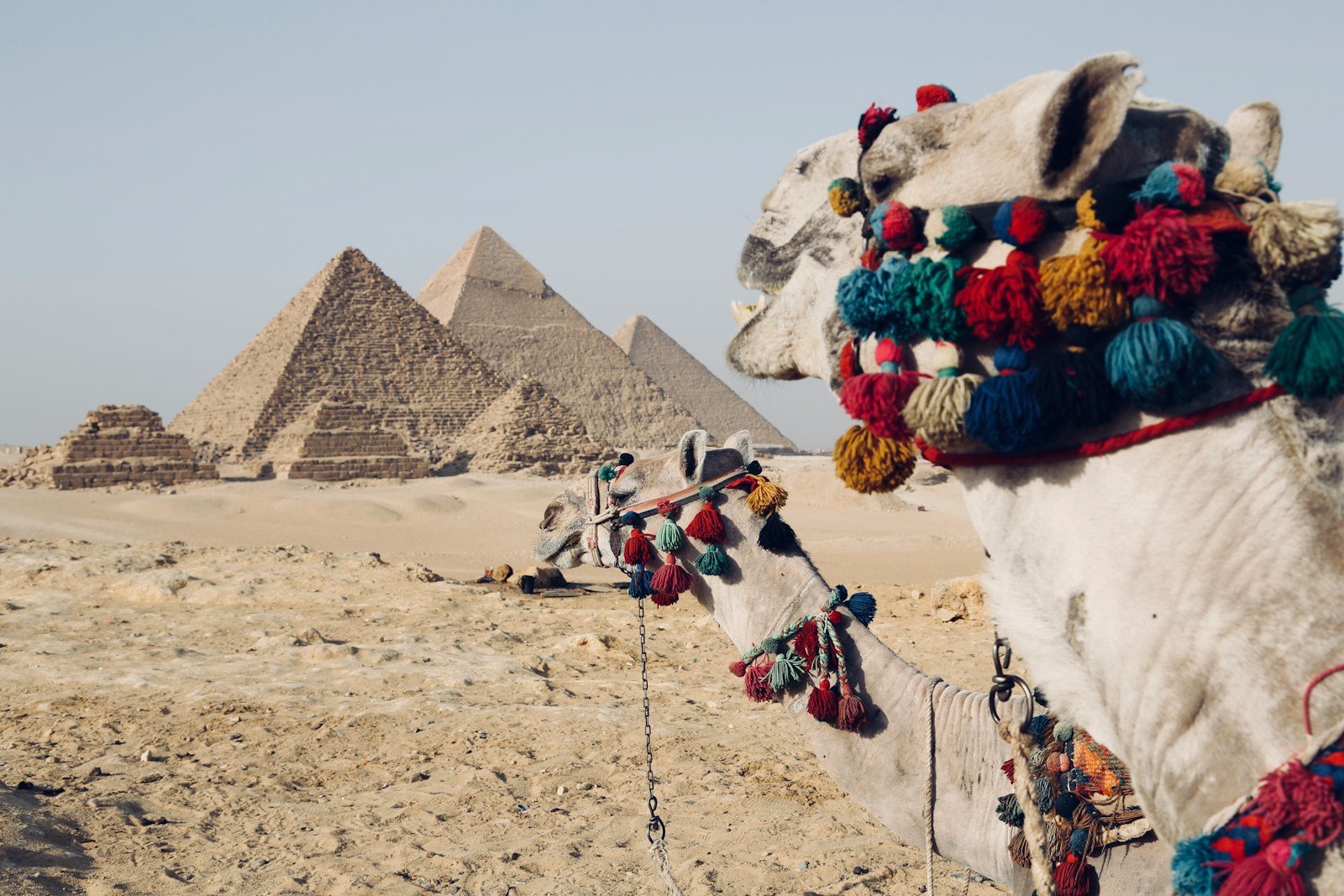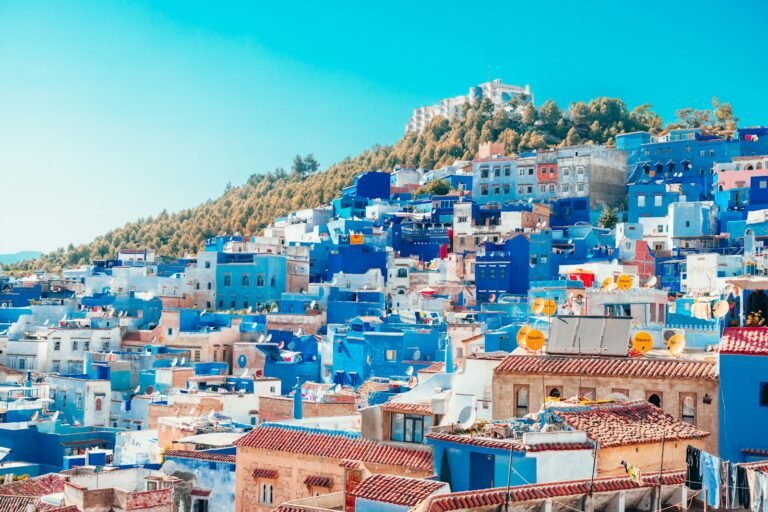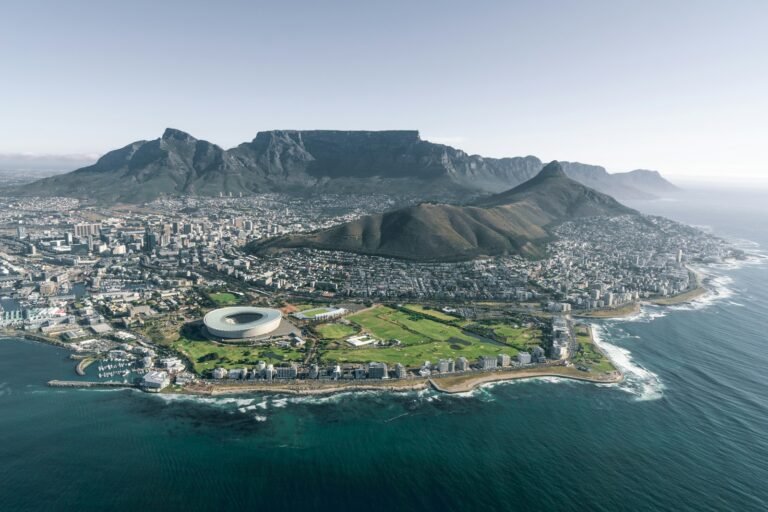Egypt Travel Guide: Ancient Wonders & Modern Adventures
Top Egypt Tours, Tickets & Experiences
Discover Egypt’s most iconic sites with skip-the-line access, Nile cruises, and private pyramids tours. Book Egypt Tours on Viator.
Introduction to Egypt Travel Guide
From the golden sands of the Sahara to the glittering waters of the Red Sea, Egypt is a land steeped in history, mystery, and timeless allure. Whether you’re drawn by the ancient marvels of the Pharaohs, vibrant markets of Cairo, or sun-drenched beach resorts, Egypt caters to culture lovers, adventure seekers, and luxury travelers alike. In this guide, explore everything from top places to visit to hidden gems, transportation tips, and immersive experiences across the Land of the Nile.
Destination Overview & Regional Breakdown
Egypt lies at the crossroads of Africa and the Middle East, split by the iconic Nile River.
Key Regions:
- Cairo & Giza – Bustling capital, home to the Pyramids of Giza and Egyptian Museum.
- Luxor & Aswan – Rich in temples, tombs, and Valley of the Kings.
- Alexandria – Mediterranean vibes, Roman history, and coastal charm.
- Red Sea Riviera (Hurghada, Sharm El Sheikh, Marsa Alam) – Beaches, diving, resorts.
- Sinai Peninsula – Desert landscapes, Mount Sinai, and Bedouin culture.
- Western Desert Oases (Siwa, Bahariya) – Remote adventure, natural springs, and local life.
Must-Stay Spots:
- Giza (for iconic sights)
- Luxor (for ancient temples)
- Hurghada (for Red Sea luxury)
Top Places to Visit in Egypt
1. Pyramids of Giza & The Sphinx
The last surviving Ancient Wonder of the World.
Book a Pyramids & Camel Ride Tour
2. Karnak Temple Complex, Luxor
A vast site of pylons, chapels, and obelisks built over 2,000 years.
3. Abu Simbel Temples
Colossal rock-cut temples relocated to save them from Nile flooding.
4. Egyptian Museum, Cairo
Treasures of Tutankhamun and countless mummies.
5. Valley of the Kings
Final resting place of many pharaohs, including Tutankhamun.
6. Alexandria Library
A stunning modern homage to the ancient world’s greatest knowledge center.
Best Time to Visit Egypt
- October to April: Ideal for sightseeing, with cooler, dry weather.
- May to September: Very hot, especially inland. Better for beach destinations.
Festivals to Note:
- Coptic Christmas (Jan 7)
- Abu Simbel Sun Festival (Feb & Oct)
- Ramadan: Cultural experience, but limited dining options.
Top Things to Do
- Cruise the Nile River from Luxor to Aswan
- Scuba dive in the Red Sea (Sharm El Sheikh or Marsa Alam)
- Explore ancient temples (Edfu, Kom Ombo, Philae)
- Shop for spices and lanterns in Khan El Khalili Bazaar
- Hike Mount Sinai at sunrise
- Visit the White Desert and camp under the stars
- Try a felucca ride in Aswan or Cairo
Explore More Egypt Activities on Viator
Culture & History
- Pharaonic Egypt: From 3000 BCE, ancient dynasties ruled with monumental achievements.
- Islamic Egypt: Cairo became a cultural hub in the Islamic Golden Age.
- Modern Egypt: A mix of Arab, African, and Mediterranean influences.
- Traditions: Family values, hospitality, tea culture, and storytelling remain strong.
Beaches, Nature & Outdoor Experiences
- Red Sea Coral Reefs: World-class snorkeling and diving.
- Siwa Oasis: Salt lakes, hot springs, and ancient ruins.
- The Sahara Desert: White Desert, Black Desert, and sandboarding.
- Nile River: Scenic cruises and local village stops.
Viewpoints & Photo Opportunities
- Pyramid Panorama Point, Giza
- Sunset from the Nile in Aswan
- Mount Sinai Summit Sunrise
- Luxor Temple at Night
- Siwa’s Fatnas Island
Bring sun protection, wide-angle lenses, and water!
Where to Eat: Egypt’s Culinary Scene
Dishes to Try:
- Koshari – Lentils, rice, pasta, tomato sauce, fried onions
- Ful Medames – Mashed fava beans
- Molokhia – Leafy green soup
- Mahshi – Stuffed vegetables
- Baklava & Basbousa – Sweet treats
Recommended Spots:
- Abou El Sid (Cairo) – Upscale traditional fare
- Felfela (Giza) – Popular with tourists
- El Fishawy (Khan El Khalili) – Historic coffeehouse
- El Masry (Luxor) – Authentic and budget-friendly
Transportation Tips
Getting There:
- Main gateway: Cairo International Airport (CAI)
- Secondary hubs: Hurghada (HRG), Luxor (LXR), Sharm El Sheikh (SSH)
Getting Around:
- Domestic Flights: Best for long distances (Cairo–Aswan, Cairo–Luxor)
- Trains: Overnight options from Cairo to Luxor/Aswan
- Taxis & Ride-Hailing: Use Uber or Careem in cities
- Buses: Go Bus and Blue Bus for intercity travel
- Private Transfers: Recommended for convenience
- Dakhla & Kharga Oases – Desert life and ancient Christian sites
- Wadi El Rayan & Wadi Al-Hitan (Valley of the Whales) – Fossils and waterfalls
- Abydos Temple – One of Egypt’s most sacred, less visited
- Coptic Cairo – Old churches and Roman-era ruins
- Colored Canyon (Sinai) – Geological wonder for hikers
Custom Experiences & Safety Tips
Tailored Tours:
- Private Egyptologist-led tours
- Overnight desert camping
- Hot air balloon over Luxor
Safety Tips:
- Dress modestly in conservative areas
- Avoid political discussions
- Only use licensed guides
- Be cautious with tap water
- Confirm prices before rides/purchases
Nearby Destinations & Add-On Trips
- Jordan – Fly from Cairo or take a Sinai overland route
- Israel – Accessible from Sinai (check border conditions)
- Dubai – 3–4 hour flight for a modern contrast
Adventures & Practical Travel Tips
Whether you’re navigating chaotic Cairo or drifting on a serene Nile cruise, Egypt is an awe-inspiring blend of ancient splendor and modern discovery. Perfect for lovers of history, luxury seekers, photographers, and adventurous souls.
Before You Go Checklist:
- Valid passport (6+ months left)
- Visa (available on arrival or online e-visa)
- Travel insurance
- Sun protection & modest clothing
- Local currency: Egyptian Pound (EGP)
Start planning your unforgettable Egypt adventure today with handpicked tours and local insights.








